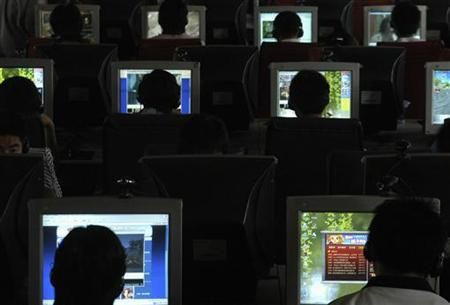CISPA Bill: Will The White House Support The Internet Privacy Bill Coming Before Congress Again In 2013?

CISPA, the Cyber Intelligence Sharing Protection Act, is coming back to Congress this year.
The year 2012 was an important one for Internet security. Between the FBI shutting down Kim Dotcom's MegaUpload and the introduction of bills like CISPA, SOPA and PIPA, 2012 potentially could have changed the Internet for generations if those bills had passed. While most Internet users thought they were in the clear after last year's Internet blackout helped overturn SOPA and PIPA, it turns out that CISPA will be making a comeback in 2013.
CISPA is a bill that hopes to limit cyber attacks -- like the one on the Federal Reserve just a few days ago -- by allowing private companies to share information about cyberthreats and harmful source code with the Department of Homeland Security. The bill was supported by a number of large Internet companies, including Microsoft and Facebook, because they felt that they broke down legal barriers regarding the way corporations and the government share information about cyberthreats.
Opponents of the CISPA bill argued that the bill lacked enough protection for the general public and the increased amount of electronic communications that would be shared between the government, intelligence community and the NSA. Gizmodo writes that CISPA was too vague and had very little oversight, which could have led to legal invasion of privacy for any American.
The Hill reported that Rep. Dutch Ruppersberger, D-Md., and Rep. Mike Rogers, R-Mich., plan to reintroduce CISPA to the House of Representatives later this year. Last time, the CISPA passed the House, but President Barack Obama threatened to veto the bill if it reached his desk. However, Ruppersberger is working with the White House so that Obama would sign the bill this time if it passes the House and Senate.
"We're working on some things ... working with the White House to make sure that hopefully they can be more supportive of our bill than they were the last time." Ruppersberger continued, adding that the cooperation with the White House has been "working pretty well."
Ruppersberger and Rogers understand the concerns surrounding CISPA and have been attempting to assuage said issues by amending the bill. The Hill noted that the two congressmen modified the bill last year to address some problems privacy-advocacy groups had with CISPA, but the groups still weren't happy.
In theory, CISPA is all about preventing cyberattacks from occurring and helping the government and various companies share information about any potential cyberthreats. After reports that major news publications like the New York Times, Wall Street Journal and Washington Post were hacked in recent weeks, maybe it's time we need something like CISPA. The problem is the privacy and data of the American people is dangerous in the wrong hands and, without proper oversight, could be abused.
© Copyright IBTimes 2024. All rights reserved.





















